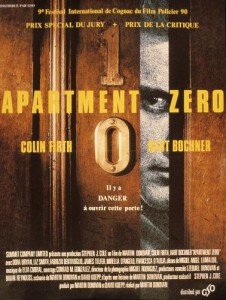From the Chicago Reader (March 31, 2006). — J.R.
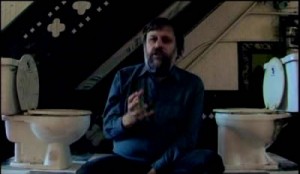
I’m almost tempted to say that making me popular is a resistance against taking me serious, says Slavoj Zizek in this entertaining 2005 portrait of the Slovene cultural theorist and academic rock star. It’s a characteristic utterance, and his charisma is such that the meaning registers despite the faulty grammar. Whether he’s ruminating in his Ljubljana flat, speaking at the University of Buenos Aires, fleeing autograph hounds, running for president of Slovenia (in 1990), defining ideology, or staging his own mock suicide, his frenetic and lucid manner is neatly captured by the jazzy style of director Astra Taylor. In English and subtitled Slovene. 71 min. (JR)
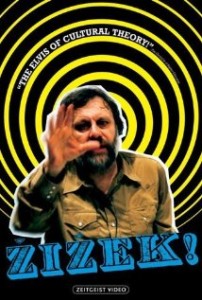 Read more
Read more
A post on the Chicago Reader‘s blog, Bleader. — J.R.
A brief dispatch from Rotterdam
I’m posting this from a public, stand-up facility at the Rotterdam film festival, which means I have to keep this brief. I’ve seen only one feature so far that I’ve cared for very much — a documentary called Murch by Edie and David Ichioka, about film editor Walter Murch (whom I once had the pleasure of working with on a re-edited version of Orson Welles’s Touch of Evil). The film offers a fascinating glimpse of some of the tricks of Murch’s trade, presented with wit and lucidity. Edie Ichioka is a former assistant of Murch’s, and she and her husband clearly knew the right sort of questions to get him started.
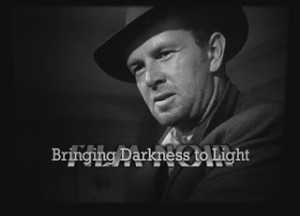
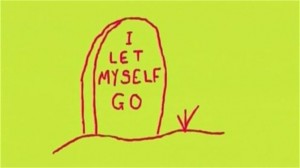
Otherwise, I’ve been mainly seeing things that I don’t last all the way through. (Walking out of films is something of a luxury for me, since for obvious professional reasons I can’t do this when I’m reviewing in Chicago.) The main exceptions have been a couple of interesting experimental shorts, both of which find novel ways of combining animation with live action — called, respectively, Film Noir: Bringing Darkness to Light and Regarding the Pain of Susan Sontag (Notes on Camp) — and Summer Palace, a sort of dirge about a female college student in Beijing before, during, and after the Tiananmen Square events, by Lou Ye, the director of Suzhou River, which I stayed to the end of mainly because of jetlag and inertia.
Read more
Written for the Carlotta box set release of Out 1, and reprinted here with their permission. — J.R.
Out 1 and Its Double
Jonathan Rosenbaum
[Ornette Coleman’s Free Jazz] causes earache the first time through, especially for those new to Coleman’s music. The second time, its cacophony lessens and its complex balances and counter-balances begin to take effect. The third time, layer upon layer of pleasing configurations — rhythmic, melodic, contrapuntal, tonal — becomes visible. The fourth or fifth listening, one swims readily along, about ten feet down, breathing the music like air.
— Whitney Balliett, “Abstract,” in Dinosaurs in the Morning
If there is something comforting — religious, if you want — about paranoia, there is still also anti-paranoia, where nothing is connected to anything, a condition not many of us can bear for long.
— Thomas Pynchon, Gravity’s Rainbow
In the spring of 1970, Jacques Rivette shot about thirty hours of improvisation with over three dozen actors in 16mm. Out of this massive and extremely open-ended material emerged two films, both of which contrive to subvert the traditional moviegoing experience at its roots. Out 1, lasting twelve hours and forty minutes, structured as an eight-part serial, originally subtitled Noli me tangere, that was designed for but refused by French television, was screened publicly only once (at Le Havre, 9-10 September 1971), still in workprint form. Read more





